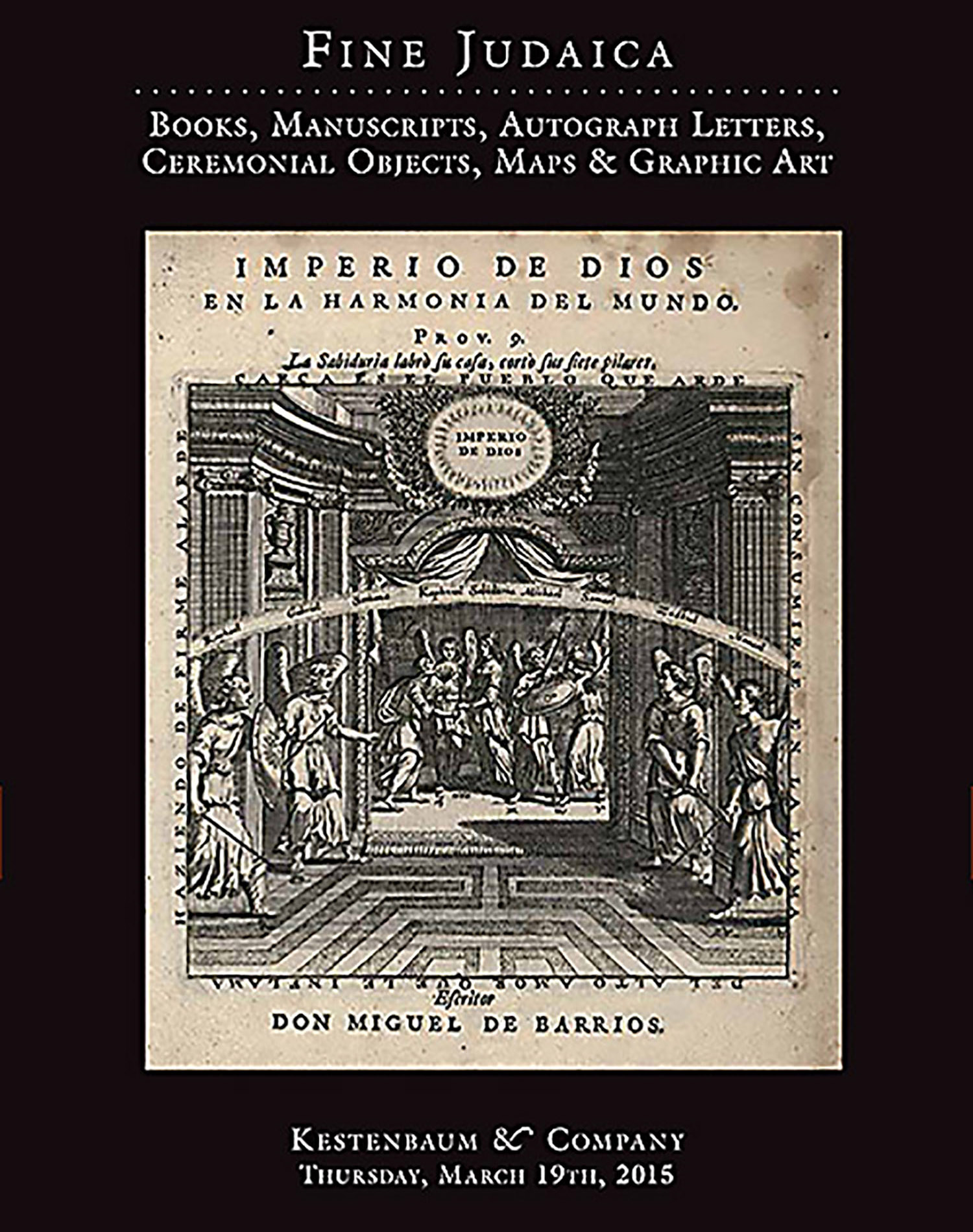Isaac Mayer Wise. An Essay on the Temperance Question.

AUCTION 64 |
Thursday, March 19th,
2015 at 1:00
Fine Judaica: Books, Manuscripts, Autograph Letters, Ceremonial Objects, Maps and Graphic Art
Lot 39
(AMERICAN JUDAICA).
Isaac Mayer Wise. An Essay on the Temperance Question.
Cincinnati: 1880’s
Est: $1,000 - $1,500
PRICE REALIZED $1,500
In this lecture, delivered before the Unitarian Friends of Inquiry, Wise railed against the contemporary temperance movement that sought to outlaw alcohol. Wise commented, “If religion and prayer are abused to wage war on liquor to-day, they may be used to-morrow, on the same principle precisely, to persecute and pray out of their homes, Freemasons, Catholics, foreigners, infidels, or anybody who is not fashionable, suits not the tastes of his neighbors, or does not conform to vulgar prejudices.”
Many 19th-century Jewish leaders were hesitant to support American social reform movements since they were usually infused with an evangelical Christian spirit. “Religion played a significant role in the Temperance Movement. Religious language permeated its tracts; ministers and prominent Church laymen dominated its leadership; and several denominations … openly aligned themselves with its stated aims … American Jews became involved in these debates because of their supposed expertise in Scriptural matters. Protestants viewed them as ‘guardians of the Scripture,’ and believed that Jews preserved ancient traditions that shed light on what the Bible meant. Throughout the nineteenth century one finds American Jews called upon to answer questions regarding the ‘Jewish’ view of any number of controversial subjects from slavery … to whether baptism should be performed at infancy or later … The fact that Christian Americans brought Jewish ‘expert testimony’ to bear on the temperance question remains highly significant. It reveals much about the way Christians tended to relate to Jewish leaders in nineteenth-century America, how they used them as resources, viewed them as repositors of ancient wisdom, and looked to them as potential legitimators of Christian practices. It also reveals much about the way some Jewish leaders responded to these Christian overtures … In other times and places, Jews … would have likely been reluctant to intervene in mooted questions bearing on internal Christian affairs; not so in nineteenth-century America.” J. Sarna, Passover Raisin Wine, the American Temperance Movement and Mordecai Noah, in: HUCA (1988) pp. 269-87.
